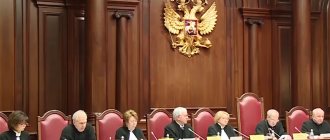One of the main problems for the courts in recent years is ensuring the appearance of witnesses and defendants, victims - in a word, all participants necessary for the correct conduct of the process. Often the procedure is delayed for a long period of time precisely because a witness fails to appear in court in an administrative case, or even in a criminal one.
The trouble is universal
Just ten years ago, just the word “court” evoked respect and fear among people. This affected the discipline of those involved in the process: failure to appear in court as a witness was extremely rare, and even lateness was recorded very rarely. But these days the court has lost respect, which affects the behavior of the participants. Many are late and do not appear in court without having any important reasons.
What happens in practice? Often, a witness fails to appear in court in a civil case, defendants do not show up for hearings, and victims are late for an unlimited time without any justification. Even lawyers who are interested in the process are often late or miss meetings. This has been noticed more than once by both lawyers and prosecutors. In such a situation, the judge postpones the event. Everything is not so scary if a witness’s failure to appear in court in a criminal or administrative case occurred only once, but the person does not come again and again. Because of this, the case becomes protracted, it leads to judicial red tape, and journalists attack the judge, making him a “scapegoat.”
Minor witness
The specifics of summoning minors to court and interrogating minors to give evidence are stipulated in the relevant articles of the Civil Procedure Code and the Criminal Procedure Code.
In civil proceedings
Code of Civil Procedure of the Russian Federation. Article 179. Interrogation of a minor witness
1. The interrogation of a witness under the age of fourteen, and at the discretion of the court, the interrogation of a witness between the ages of fourteen and sixteen years, is carried out with the participation of a teaching worker who is summoned to court. If necessary, the parents, adoptive parents, guardian or trustee of the minor witness are also called. These persons may, with the permission of the presiding officer, ask the witness questions, as well as express their opinion regarding the identity of the witness and the content of the testimony given by him. 2. In exceptional cases, if it is necessary to establish the circumstances of the case, during the interrogation of a minor witness, one or another person participating in the case may be removed from the courtroom on the basis of a court ruling, or any of the citizens present may be removed in the courtroom. The person participating in the case, after returning to the courtroom, must be informed of the content of the testimony of the minor witness and must be given the opportunity to ask the witness questions. 3. A witness who has not reached the age of sixteen is removed from the courtroom at the end of his interrogation, unless the court finds it necessary for the presence of this witness in the courtroom.
In criminal proceedings
Code of Criminal Procedure of the Russian Federation. Article 280. Peculiarities of interrogation of a minor victim and witness
1. When participating in the interrogation of victims and witnesses under the age of fourteen years, and at the discretion of the court, at the age of fourteen to eighteen years, a teacher shall participate. The interrogation of minor victims and witnesses with physical or mental disabilities is carried out in all cases in the presence of a teacher. 2. Before the interrogation of the minor, the presiding officer explains to the teacher his rights, about which a corresponding entry is made in the minutes of the court session. 3. The teacher has the right, with the permission of the presiding officer, to ask questions to the minor victim or witness. 4. If necessary, their legal representatives are also called to participate in the interrogation of minor victims and witnesses specified in part one of this article, who can, with the permission of the presiding officer, ask questions to the interrogated person. The interrogation of a victim or witness under the age of fourteen is carried out with the mandatory participation of his legal representative. 5. Before interrogating victims and witnesses under the age of sixteen, the presiding officer explains to them the importance of complete and truthful testimony for a criminal case. These persons are not warned of liability for refusal to testify and for giving knowingly false testimony and their subscription is not taken. 6. In order to protect the rights of minors, at the request of the parties, as well as at the initiative of the court, the interrogation of victims and witnesses under the age of eighteen may be carried out in the absence of the defendant, about which the court issues a ruling or resolution. After the defendant returns to the courtroom, he must be given the testimony of these persons and given the opportunity to ask them questions. 7. At the end of the interrogation, the victim or witness who has not reached the age of eighteen years, the teacher who was present during his interrogation, as well as the legal representatives of the victim or witness may leave the courtroom with the permission of the presiding judge.
Abroad and here
How is the judicial system organized in other countries? Abroad, they act as follows: there is a government agency responsible for the subpoena. Its employees deliver notifications personally to the participants in the process, receiving their signature as confirmation of receipt of the paper. In such a situation, the consequences of a witness’s failure to appear in court are quite unpleasant - most often large fines. The judicial systems abroad are such that contempt of court is regarded as a challenge to the country and its government.
In Russia, things are still different. Summons are sent by mail, and bailiffs are responsible for ensuring that all interested parties are present at the trial. Ideally, bailiffs should arrange for the appearance in court of even those persons who are trying to avoid attending the trial. The reasons for the witness's failure to appear in court, which are considered acceptable, are communicated to everyone. Nevertheless, time after time, meetings are disrupted due to the lack of participants.
Commentary on Article 168 of the Code of Civil Procedure of the Russian Federation
1. For all subjects of the group specified in the commented article (witnesses, experts, specialists, translators), attendance at a court hearing is not a right, but an obligation. This feature of their legal status, combined with the lack of legal interest in the outcome of the case, necessitates the use of a wider range of possible consequences of their failure to appear and fundamentally different criteria for the application of such consequences.
2. Part 1 of the commented article talks about two main consequences of the failure of persons assisting in the administration of justice to appear at a court hearing - the continuation of the trial in the absence of a witness, expert, specialist or translator who failed to appear and its adjournment. As a criterion for applying one of the two indicated consequences, the law establishes the possibility of considering a case in the absence of witnesses, experts, specialists, and interpreters who did not appear, and, before making a final conclusion, the court is obliged to listen to the opinion of the persons involved in the case on this issue.
3. As for the criteria for deciding the possibility of considering a case in the absence of a person who has not appeared and assists in the administration of justice, they are different for each of these subjects. Thus, in the event of a witness’s failure to appear, the court proceeds from how important his testimony is for the correct resolution of the case, whether other witnesses can report the fact in support of which the failed witness was called, and whether it is possible to ensure his appearance at the court hearing. In the event of an expert’s failure to appear at the court hearing, the completeness and validity of the expert’s written opinion and the need for his personal explanations on issues, the explanation of which is related to special knowledge in this area, are discussed (Article 79 of the Code of Civil Procedure). The absence of a specialist at the court hearing may serve as a basis for postponing the hearing of the case if, upon reading the written consultation, doubts arose about the completeness of the answer to the question raised by the court, the scientific validity of the conclusions, as well as under other circumstances that can be clarified only upon receipt of clarification and explanations personally from a specialist.
The appearance of an interpreter at a court hearing is of particular importance for two reasons: 1) the implementation of the rights of persons participating in the case, but who do not speak the language of the proceedings, depends on him; 2) consideration of the case in the absence of an interpreter, regardless of whether he was notified of the time and place of the court hearing or not, is a gross violation of procedural rules and serves as an absolute basis for the reversal of the court decision (clause 3, part 2, article 364 of the Code of Civil Procedure). These circumstances allow us to conclude that the postponement of the trial of the case in the absence of an interpreter is actually mandatory, unless there is another person at the court hearing who can carry out a complete and correct translation of testimony, explanations, statements of persons who do not speak the language in which the proceedings are conducted. legal proceedings, translation for them of testimony, explanations, statements of other participants in the process, as well as all necessary documents, including rulings and court decisions.
4. Along with the main ones (continuation of trial in the absence of a witness, expert, specialist or translator who has not appeared and its adjournment), the commented article provides for two additional consequences - the imposition of a fine and forced arrest. However, it should be noted that a fine of up to 10 times the minimum wage established by federal law may be imposed on any person assisting in the administration of justice who fails to appear at the court hearing, provided that the reason for his failure to appear is recognized by the court as valid. As for forced arrest, it can only be applied to a witness (according to the Code of Civil Procedure of the RSFSR, enforcement could also be applied to an expert) and only if he fails to appear at the second summons. The imposition of a fine on a witness, expert, specialist, translator for failure to appear at a court hearing for unexcusable reasons may be repeated. In this case, the witness is warned that if he fails to appear at the second summons, he will be forcibly brought to court by a court decision by a bailiff.
Addresses and responsibility
Very often the following happens: bailiffs visit the address indicated as the place of residence of the person whose appearance needs to be ensured, but do not find the person there. They write a report about what happened and indicate that it does not seem realistic to implement the resolution. However, the court is forced to solve the problem of non-appearance, postpone the hearings and delay the consideration of the case until the person shows up. Thus, the failure of a witness to appear in court in a criminal or administrative case becomes a headache not so much for the victim as for those responsible for court records.
Prosecution and victim
As a rule, the victim in the judicial process finds himself “in the same boat” with the prosecutor from the state. If we are talking about private processes, then the victim independently defends his position.
In this case, the victim either comes to the trial himself or is visited by an authorized person. If no one appears and the case is classified as criminal, then the consideration can be organized without the injured party, unless, of course, it was previously established that the victim must be present. If there are no good reasons for not attending the hearing of a criminal case of private prosecution, the victim who missed the hearing faces the termination of the proceedings. This behavior of the court is prescribed in the fifth paragraph of the first part of Article No. 24. The situation is similar if the prosecutor from the state abandons his position.
Witness and failure to appear
A person involved in a case as a witness is obliged to appear at the trial if summoned. It is also obliged to convey exclusively truthful information. This is the legal duty of a citizen, and also the duty as a citizen. If a person tries to evade transmitting information to the court or refuses to do so, if he transmits false data, then it is possible to bring him to criminal liability.
Well, what are the consequences of a witness’s failure to appear in court? Depends on whether there were good reasons for it. If any were present, you will have to prove their reality. If you are absent, you must be prepared to be brought to a meeting against your will. This is allowed by the seventh part of the article, number 56. The court may also impose a fine for the failure of a witness to appear in court. Currently, the amount varies, the maximum is 2,500 rubles.
Request to question a witness
Such a petition (in other words, a request to the court) can be expressed either orally or in writing. In both cases, it is necessary to justify what circumstances that are important to the case can be told to the court by this or that person.
If the request is made orally, it will be entered into the minutes of the court hearing. Written petitions are attached to the case materials; it is not necessary to make copies for the other party (this is optional), an approximate example is here:
To the magistrate of court district No. 10 in Petrozavodsk, L.B. Mironova, plaintiff in a civil case for the recovery of 34,000 rubles for improper provision of services by defendant A.P. Maslov. (additionally, you can provide more detailed information: place of residence, telephone number, civil case number)
REQUEST to question a witness
There is a civil case pending in your proceedings based on the claim of L.B. Mironova. (that is, me) to A.P. Maslov. about the recovery of 34,000 rubles under a contract for the provision of services (repair of an apartment at my residence address: Petrozavodsk, Krasnoselskaya st., 14, apt. 5). The court hearing is scheduled for 02/20/2018, at 14:00.
I ask you to summon and interrogate G.R. Pavlova, who lives at the address: Petrozavodsk, st. Krasnoselskaya, 14, apt. 4 (it is necessary to provide the full details of the witness and his place of residence). Pavlova G.R. can explain the circumstances under which Maslov A.P. was hired by me to provide services for the renovation of two rooms in my apartment. Since Pavlova G.R. is my neighbor and close friend, I often trusted her to monitor the progress of the renovation, leaving the keys to the apartment (when filing a motion to summon the party is obliged to indicate what a potential witness can tell the court about. 2-3 sentences are enough to justify it, no need to retell everything testimony, but it is advisable to clearly “convey" to the court the essence of the information that you want to present through a witness. This will be useful if the court refuses to summon you: the appellate authority, having familiarized itself with the rationale, can take it into account and draw a conclusion in your favor).
Since Pavlova G.R. can talk about significant facts influencing the decision, while she is not a person interested in the outcome of the case, I ask you to interrogate her as a witness in the case of recovery of the amount under the contract for the provision of services from A.P. Maslov.
Based on the above, guided by art. 35 of the Code of Civil Procedure of the Russian Federation (the right of a party to file a petition) and Art. 69 Code of Civil Procedure of the Russian Federation (participation of a witness in civil proceedings),
ASK:
Summon G.R. Pavlova, residing at the address: Petrozavodsk, st. Krasnoselskaya, 14, apt. 4, for questioning as a witness.
Number, signature.
Question: When can such a petition be filed?
Answer : Almost at any time, even before the court accepts the claim for proceedings, but always before the judge retires to the deliberation room to make a final decision. The petition can be sent by registered mail (it must be registered, since this is the only way to prove sending in the event that the letter disappeared somewhere and did not reach the addressee). You can submit it to the office (for example, if you want to raise the issue of a summons before assigning the case). Make sure you have a second copy so that it can be stamped with acceptance.
And yet, most often the parties announce the calling and questioning of witnesses precisely at the court hearing. The court, having heard the petition, discusses it with other participants in the process, finding out whether they object or not. If the court comes to the conclusion that it is possible to interrogate the person requested by the author, he is summoned to the next court hearing. If attendance has already been ensured by this point (for example, when the parties are interested in a speedy consideration of the case), then the interrogation begins on the same day.
If a person is unable to attend a court hearing due to health reasons, the court has the right to organize a mobile court hearing to conduct an interrogation at the patient’s location.
All these rules are fully applicable to arbitration proceedings. Moreover, despite the dominant role of written evidence in the arbitration process, the judge is given the right to summon any person on his own initiative, without petitions from the parties. The civil procedure legislation does not directly grant the judge such a right, but does not prohibit it either. Moreover, from the meaning of Part 2 of Art. 96 of the Code of Civil Procedure of the Russian Federation (this norm provides for the distribution of procedural costs) it follows that the costs associated with calling a witness on the initiative of the court are covered from the federal budget. It turns out that the court still has the right to call witnesses without the request of the participants in the process.
It should be noted that in some situations it is not advisable to request a witness. So, in accordance with the rules of Art. Art. 161, 162 of the Civil Code of the Russian Federation, witness testimony cannot be accepted as evidence of a transaction if it was not drawn up in writing in cases where this was mandatory.
Example No. 3 . A cargo transportation company delivered furniture to a citizen, but the client refused to receive supporting documents (receipts) and formalize the contract, considering this to be unnecessary bureaucracy. Subsequently, while unpacking the cargo with a friend, the client discovered a broken mirror from an Italian manufacturer, the damage amounted to more than 100,000 rubles. The consignee filed a claim, but since he did not have documents and the transaction at his request was not formalized in writing, he decided to file a motion to interrogate his friend, who was present when the cargo was unpacked, as a witness. The court refused to satisfy the petition, since the parties cannot refer to the testimony of witnesses about the conclusion of the transaction if the mandatory written form is not complied with (in accordance with the requirements of Article 161 of the Civil Code of the Russian Federation, the preparation of written documentation is mandatory in civil legal relations between a legal entity and a citizen) . The court's refusal was recognized as legal in subsequent instances.
If your request was unreasonably denied, the court's ruling in this part cannot be appealed separately. At the same time, you have the right to express your disagreement with the refusal in an appeal against the court decision when it is made following the results of the judicial review. Practice shows that well-motivated requests in rare cases remain unsatisfied.
Circumstances and failure to appear
What is a valid reason for a witness not to appear in court? Current legislation, unfortunately, does not contain an exhaustive list of such circumstances that can be assessed as valid. This becomes an obstacle to correct paperwork. As experienced lawyers object, it is impossible to take into account all possible disrespectful and valid reasons and document them at the state level. Others say this is not required.
The Criminal Code contains a definition of a valid reason, suggesting that any reason that is justified and does not violate laws and rights, does not depend on the will of the citizen himself and turns appearance into a process difficult or unrealistic is considered as such.
How many witnesses to call to court?
Participants in civil proceedings often ask about the number of witnesses who need to be called to court. For some reason, it is believed among ordinary people that it is better to call as many witnesses as possible, who will tell everything in detail, describe all the relationships between the parties and tell the court about their experiences. It must be admitted that this is a mistaken opinion.
As a rule, for each circumstance relevant to the case, the testimony of one witness is sufficient. In simple cases, it is enough to limit the number of witnesses called to two or three citizens. In this way, we will protect ourselves from the fact that one witness may not come or give confusing and contradictory testimony. It should be borne in mind that speaking in court is a rather exciting procedure that causes stress. Therefore, overly susceptible citizens should be called in only in extreme cases.
What are they?
A witness does not need to bear responsibility for failure to appear in court if the person fell ill and because of this could not come to the hearing of the case. In addition, the court forgives those who did not come due to natural disasters and transport collapses. The following are considered valid reasons:
- business trip;
- illness, death of a relative;
- lack of resources (money) to use transport.
The listed situations are obvious difficulties that prevent a person from attending a meeting.
Not valid reasons
Failure of a witness to appear in court is regarded as contempt of court and may cause a fine to be imposed in cases where a person simply did not want to attend the event or does not want to testify, which is due to self-interest, disrespect, distrust, and reluctance to act without profit for oneself.
In some cases, the victim may refuse to attend the trial because he fears retaliation from the defendant, his friends and relatives. If the court finds such a danger real, this is considered a valid reason. If the judge considers the threats to be far-fetched and the fear to be unfounded, then the reason will be reclassified as disrespectful. However, if there really is a danger, measures are usually taken to protect the person who may be in danger. For example, an interrogation is carried out in front of a limited number of people, using a technique that does not allow visual fixation of the victim. Finally, the court hearing can be organized behind closed doors.
Procedure for questioning a witness in civil cases
The procedure for interrogation is generally similar to criminal proceedings: the Code of Civil Procedure of the Russian Federation instructs the court to establish the identity of the witness - in other words, the participants in the process must make sure that in front of them is the one who was planned to be interrogated. Typically, identity is established using a passport (foreign passport), checking the data in the document. If you don’t have a passport, a license, military ID or service ID will do (the main thing is to have a photograph that can be compared with your appearance).
The court finds out:
- FULL NAME;
- place of residence and work;
- Date and place of birth;
- the presence of circumstances that prohibit interrogation (interest, special official status, etc.);
- family and close relationships with the participants in the process (they become known from the words of the interrogated).
If it turns out that a citizen is a relative of someone present, he is explained the constitutional right not to testify against other participants in the proceedings if they have close family ties with him.
The court explains the rights and obligations that we told the reader about earlier (after an oral explanation, the interrogated person is required to sign a signature, which is attached to the materials of the civil case).
The information that the citizen provided about himself and the circumstances is recorded in the minutes of the court session. The interrogated person, like the direct participants in the court session, is obliged to comply with the rules of the court proceedings: address the court “your honor” or “dear court.”
Before the start of the interrogation, the witness is removed from the courtroom; he should not be present at the court hearing when resolving procedural issues and interrogating other persons. After he has given evidence, with the permission of the presiding officer, he has the right to be in the room.
The form in which the interrogation is carried out (a story or answers to questions) is not regulated by law. Usually the procedure begins with a free story about known circumstances relevant to the case, after which answers to clarifying questions are given. The first to ask questions is the party on whose initiative the citizen was invited; the court has the right to ask questions at any time.
The presiding officer has the right to interrupt the interrogated person - for example, when he explains facts that are not relevant to the case. People who have never been to court before may unknowingly begin to talk about events that have nothing to do with the dispute - it seems to them that all the details are important. It happens that a witness is interrupted due to excessive emotionality, and sometimes due to incorrect or offensive words addressed to the participants in the process. Such behavior is considered contempt of court and may result in a fine.
The presiding officer has the right to withdraw a question (that is, not to give the participant the opportunity to ask it) if he:
- not relevant to the dispute;
- relevant to the case, but beyond the scope of the subject matter of the claim;
- formulated incorrectly, unethically, asked in a raised tone, with pressure on the witness;
- already contains the answer or directs the answer to the required party (for example, you cannot ask the question: “Did you live with the defendant because you had common children with him and he bore the family expenses, and after he was fired from his job, you decided to divorce him?” — this question already contains an answer option, which is unacceptable).
If necessary, the witness may be questioned again. For example, if the subject of the claim changes or additional demands of the plaintiff, counterclaims or other new circumstances in the case appear, as well as if there are significant contradictions between the explanations of this person and other interrogated ones.
Question: Is it possible not to appear when summoned, but to send written testimony to the court, drawn up in free form and certified by a signature (for example, when a person lives in another region)?
The answer to this question follows from the general provisions of civil law, which focuses on obtaining evidence directly from the source. Therefore, the presentation of written testimony instead of a person’s appearance in civil and arbitration proceedings is unacceptable (unlike criminal proceedings, where, subject to certain conditions, eyewitness testimony given during the investigation may be read out).
In exceptional cases, the court may send an order to the court of the region where the witness is located. During the execution of the order, the overall duration of the trial is suspended. Due to the significant increase in the period for consideration of the case and the low effectiveness (after all, it is difficult for a judge who does not know the essence of the case to take into account all the nuances and fully conduct an interrogation), this method is used extremely rarely at present.
In addition, the courts are increasingly using a video conferencing system - a technical possibility for interrogating a person located in another region, country, or even in prison. This modern method of interrogation was introduced into the Code of Civil Procedure of the Russian Federation in April 2013 and is actively used in practice.
Inaccurate information as a reason not to come
Quite often, a witness’s failure to appear in court is explained by the fact that the court has inaccurate and unreliable information. For example, a conclusion or an indictment contain incorrectly and illegibly written by hand information about the witness’s place of residence.
Investigators make mistakes when filling out personal data. Addresses and names are indicated incorrectly. Persons whose presence at the trial is required cannot be notified in a timely manner due to such technical errors, and as a result, the witness fails to appear in court.
Interrogation procedure
Witnesses are called and questioned one by one. Before the start of the interrogation, the nature of the relationship between the witness and the parties to the process is clarified. This gives the judge the opportunity to assess whether the testimony is true.
First, the interrogated person is asked to provide all known information about the circumstances of the case.
Next, the plaintiff or defendant, depending on who called the witness, asks questions. The process doesn't end there. Afterwards, the other party is allowed to ask questions. The judge has the right to intervene in the interrogation at any time.
The witness is left in the courtroom. If there are contradictions with the testimony of other persons or with the case materials, a new interrogation is carried out.
The testimony of witnesses in civil proceedings must consist only of information the source of which he can provide. For example, he personally saw what was happening or heard what he was talking about.
If a witness cannot explain exactly where he received the information, it will not be accepted by the court.
To come or not to come?
The obligations of those passing through the court as witnesses are described in the Criminal Code in Article 56, namely, in the first paragraph of the sixth part and in the seventh part. From this we can learn that good reasons are those that are sufficient to justify themselves and have grounds. In addition, the reason in the law is formulated as a certain condition that can explain a person’s actions. As for failure to appear, here the reason is the basis that allows for inaction, that is, non-attendance.
It follows from the law that a person is simply obliged to come to court. But you can skip the meeting if a person has to care for a sick person or is so sick that he is physically unable to attend the trial. If the summons was not received or did not arrive on time, the witness also finds himself in a situation where he simply cannot attend the meeting, and his guilt is removed. Some other circumstances not directly stated in the law may serve as justifications if they are truly serious. A witness who does not come to the trial can try to explain everything formally, with papers, by writing an appeal in the appropriate form. And yet, if possible, you should come to the meeting, thereby fulfilling your duty as a citizen of the country.
Witness in civil law
In accordance with the rules of Art. 69 of the Civil Procedure Code of the Russian Federation, this is an individual (an organization cannot be recognized as a witness) who knows information important for making a decision. At the same time, this person is obliged to disclose the source of his knowledge (from whose words it became known, from what documents, personal participation in the events he is talking about), otherwise the court may not accept the testimony as evidence.
How often are witnesses heard at a court hearing? Based on the analysis of practice, quite often (especially in family disputes, labor disputes, compensation for harm). It should be noted that in the arbitration process, witness testimony is used much less frequently, where the main evidence is written documents.
In accordance with the rules of civil procedure, the following cannot be questioned as witnesses:
- Representatives, defenders, mediators in civil or administrative cases - about facts that became known to them in connection with representing the interests of their clients or participating in a dispute in another form (for example, when concluding a settlement agreement). Example No. 1 . Lawyer Egorov P.R. represented the interests of the plaintiff L.V. Polyakov. in court, preparing a claim for recognition of ownership of residential premises - a two-room apartment. The decision was made by the court in favor of the plaintiff, and after it came into force Polyakov L.V. appealed to the court to evict the defendant from the disputed apartment, having entered into an agreement for the provision of legal services with a large firm. At the court hearing, the defendant stated that he wanted to question lawyer P.R. Egorov. according to the circumstances of participation in the first trial. The court rightfully refused to satisfy such a request, citing the inadmissibility of questioning a representative of the party.
- A judge, including an arbitrator (as well as jurors in a criminal case, arbitration jurors) on issues related to making a decision or passing a sentence. Example No. 2 . At the court hearing to consider the claim for compensation for moral damages associated with the brutal murder of her husband, the plaintiff, wishing to confirm the proportionality of her claims, presented a number of evidence. Among them were documents confirming the loss of a breadwinner; facts confirming the moral suffering of children left without a father; the suffering of the parents of the deceased, for whom their only son was a support in life. In addition, the widow filed a motion to question the jurors who returned the guilty verdict against the killer in order to confirm her psychological state during the murder trial. Her request was denied. Previously, when the Civil Procedure Code of the Russian Federal Service for Financial Markets was in force (until July 1, 2003), some cases were considered with the participation of people's assessors. They also do not have the right to be called as witnesses if questions relate to their participation in those cases from the times of the RSFSR.
- Representatives of religious organizations and churches about the circumstances that became known to them as a result of confession.
Civil procedure legislation (Part 4 of Article 69 of the Code of Civil Procedure of the Russian Federation) allows persons summoned for questioning as a witness to refuse to testify:
- against yourself. So, if a citizen believes that he can harm himself and what he tells will entail negative consequences for him, then he has the right not to report anything;
- against the spouse and close relatives: children (including adopted children), parents (including adoptive parents), grandparents, grandchildren;
- deputies about the circumstances that became known to them as a result of their parliamentary activities;
- The Commissioner for Human Rights, as well as the Commissioners under the President of Russia - about information related to work.
As a general rule, a witness is a person disinterested in the outcome of the case. Simply put, he should absolutely not care whose side the court takes and what decision will be made. At the same time, despite the fact that formally the witness is not a party to the case, quite often the person interrogated is conditionally on someone’s side - the plaintiff or the defendant. Thus, a relative invited by the plaintiff most likely still wants the decision to be in favor of the plaintiff.
In practice, there are quite rare cases when courts, due to obvious interest, did not accept certain testimony of a witness as evidence. In accordance with the explanations of the Supreme Court of the Russian Federation, in such situations the grounds on which the conclusion about interest was made must be given in the decision.
Question: Are there age criteria for questioning a witness in civil proceedings?
Answer : The law does not provide clear criteria; an elderly person, a child, and even a person with mental disabilities can be questioned. At the same time, the court is obliged to analyze the interrogation and information that was reported, and subsequently assess the reliability and admissibility of the evidence obtained, while observing certain conditions (the presence of a teacher when interrogating a child under 14 years of age; conducting an examination to understand the actual actions or involving specialist).
How are the meetings announced?
If you think that you may be a witness in some case, try not to miss the notice of the process. This is usually sent through the postal service. As a rule, this is a registered letter with notification, and upon receipt you will have to sign. The notice is sent back to the court, allowing it to be documented that the mail was delivered to the addressee.
By law, you are not required to use only paper mail. You can also use a fax or send a telephone message or telegram. Any delivery or means of communication are considered suitable if they allow witnesses and other participants to be notified in a timely manner about the place and time of the meeting. The most important thing is a documentary, official recording of the fact that the data was transferred to the addressee.
Some nuances
If it is necessary to bring a child under 16 years of age to court as a witness, then a notice is sent to the parents, since they will have to accompany the child to the law enforcement agency. If there are no parents, then these will be other representatives of the minor who have the right to do so under the law.
In some cases, the court entrusts one person with a subpoena and then gives it to another. In this case, the document is given directly to your hand. After some time, such a person will have to present to the judge the counterfoil of the notice or a copy on which the addressee noted that the summons was received. If a person refuses to accept the notice, it is generally accepted that the data was transferred to him on time anyway.
Valid reasons for absence from a meeting
The legislation establishes a number of circumstances in which failure to appear does not entail legal consequences for the absentee:
- a serious illness due to which a person is not physically able to come to court;
- illness of a relative of a participant in the proceedings;
- untimely delivery of the agenda (for example, on the day of the meeting or even later), its absence;
- extraordinary circumstances, natural disasters that prevent you from coming to court on the appointed date;
- unexpected lack of transport links between two settlements;
- the need to travel to another city for work or personal reasons.
This list is not exhaustive. If a participant in the case had other compelling reasons to be absent from the meeting, he has the right to provide them. The main thing is to prepare the appropriate evidence.
It is necessary to prove the existence of extenuating circumstances by providing documents. So, if the cause is illness, it is necessary to prepare a sick leave certificate and other medical certificates. You can send a petition to the court requesting missing certificates and papers.
If a person forgot about the case, was at work at the time, or did not have enough money to travel to the court, then these are not sufficient reasons for absence. An employer has no right to detain a subordinate at the workplace. The employee must provide him with a summons indicating the date of the meeting.
Vacation is not a good enough reason for absence from a meeting. But if, for example, the importance of a witness is insignificant, and he provides pre-purchased air tickets, then the court may limit itself to reading his testimony.
Changing your address is not a reason not to participate
If a certain person, a witness in the case, first indicated one address for communication, and then changed his place of residence without notifying the court, then it is generally accepted that he himself is responsible for receiving mail at the previous address. To avoid misunderstandings, it is necessary to promptly provide the court with information about the new address for sending correspondence.
The court sends the documents to the address that the person last indicated as a contact address. The document is considered to have been delivered even if the person no longer lives in the apartment. A person may be forcibly brought to a meeting if he missed the event twice without good reason. The person is brought to court, and sometimes to the inquiry officer or investigator.
Documents are the key to wallet security
So, as stated above, an unexcusable reason for failure to appear may serve as a reason to issue a fine. Usually it varies from one thousand to two and a half; the judge chooses specific figures based on the circumstances of the case. It is not uncommon for unfortunate witnesses to try to justify themselves by saying that they simply did not see the notice in the mailbox, and therefore were unable to receive the summons on time and find out about the place and time of the meeting. For the court, such justification means absolutely nothing, so you should not hope for leniency. The only thing that can save you in such a situation is the presence of a document officially confirming that the reason for non-appearance was sufficiently valid.
On the other hand, the judge usually issues a fine when the situation is regarded as an insult to the state and the highest authority. Repeated failure to appear is almost always a good enough reason to impose a fine.
We transfer - we save money
If you have official important reasons that do not allow you to attend the meeting, you can write a special petition in which you ask to consider the possibility of postponing the meeting to another time. The court will consider it and may satisfy it if the cause is death, illness of a relative and other reasons listed above. Information should be sent in advance.
If the person’s testimony is considered sufficiently significant, then the meeting is postponed to another date, both in case of failure to appear, which was notified in advance, and in case of actual absence. The alternative is to continue the case. The court has the right not to make public the testimony of a person if he does not appear at the hearing of the case. However, the prosecutor may insist on classifying the circumstances as extraordinary, and then asks to read out the latest information received from the absent person. The judge will decide how this ends.










